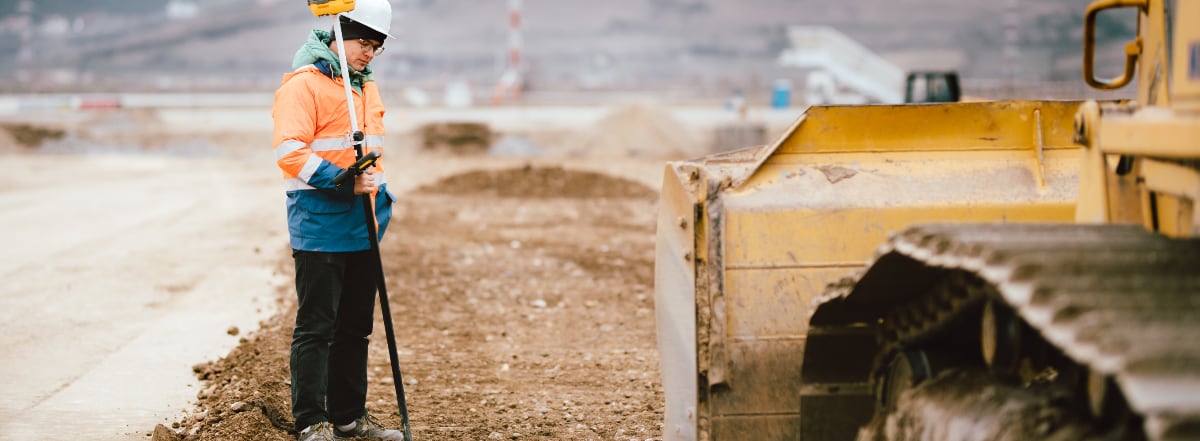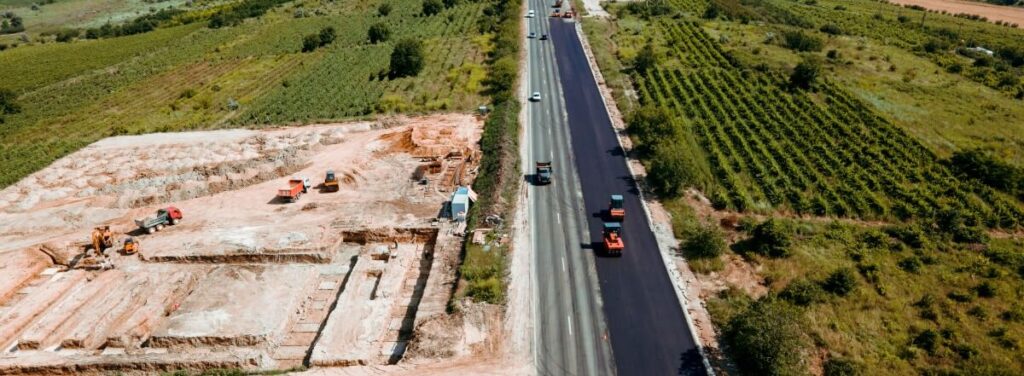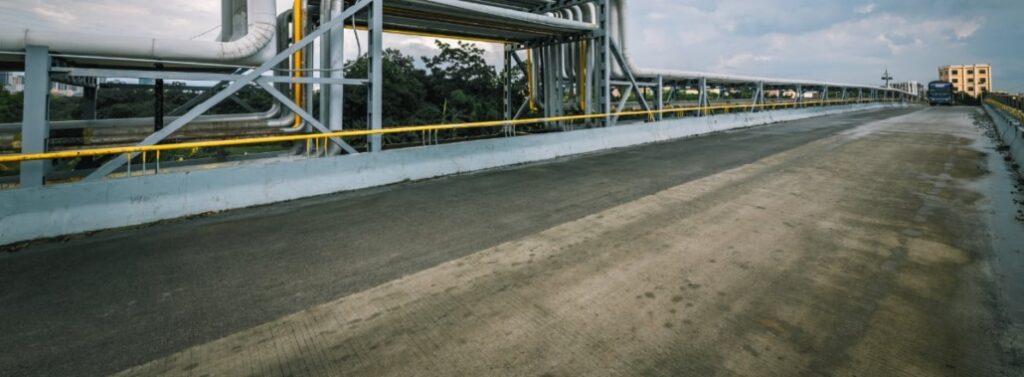निर्माण सामग्री का पर्यावरणीय प्रभाव परियोजना नियोजन और क्रियान्वयन में एक महत्वपूर्ण कारक बनता जा रहा है। इस संबंध में, ग्लास फाइबर प्रबलित प्लास्टिक (GFRP) कंपोजिट, जैसी कंपनियों द्वारा समर्थित, Composite-Tech, एक महत्वपूर्ण सकारात्मक प्रभाव डाल रहे हैं। सड़क निर्माण में जीएफआरपी कंपोजिट का उपयोग न केवल परियोजनाओं के समग्र कार्बन फुटप्रिंट को कम करने में योगदान देता है, बल्कि पुनर्चक्रण और स्थिरता के सिद्धांतों के अनुरूप भी है।
सामग्री

सड़क निर्माण में जीएफआरपी सरिया के उपयोग के पर्यावरणीय लाभ
कार्बन फुटप्रिंट कम करना
एफआरपी कंपोजिट पर्यावरण अनुकूल निर्माण सामग्रियों में सबसे आगे हैं, मुख्य रूप से उनके अंतर्निहित गुणों और उनके उत्पादन और अनुप्रयोग में शामिल प्रक्रियाओं के कारण।
उत्पादन चरण
The जीएफआरपी सरिया की निर्माण प्रक्रिया स्टील या कंक्रीट जैसी पारंपरिक निर्माण सामग्री की तुलना में, आमतौर पर कम ऊर्जा की आवश्यकता होती है। कम ऊर्जा की आवश्यकता का सीधा अर्थ उत्पादन चरण के दौरान कम कार्बन उत्सर्जन होता है।
परिवहन और स्थापना
जीएफआरपी सरियों का हल्का वजन परिवहन के लिए आवश्यक ऊर्जा और संसाधनों को काफी कम कर देता है। इसके अलावा, इनके संचालन और स्थापना में आसानी का मतलब है कि निर्माण परियोजनाएँ तेज़ी से और कम ऊर्जा-गहन मशीनरी के साथ पूरी की जा सकती हैं, जिससे कार्बन फुटप्रिंट और भी कम होता है।

स्थायित्व और रखरखाव
जीएफआरपी कंपोजिट एफआरपी से बनी संरचनाएं अत्यधिक टिकाऊ और जंग प्रतिरोधी होती हैं, जिसका अर्थ है कि इन्हें कम बार मरम्मत और रखरखाव की आवश्यकता होती है। यह दीर्घायु, मरम्मत की आवश्यकता को कम करती है। कच्चा मालसंरचना के जीवनकाल में मशीनरी, और परिवहन पर पड़ने वाले प्रभाव के कारण कुल मिलाकर कार्बन उत्सर्जन में उल्लेखनीय कमी आई है।
पुनर्चक्रण और स्थिरता
निर्माण सामग्री की स्थायित्वता केवल उत्पादन और उपयोग के दौरान उनके प्रदर्शन और ऊर्जा पदचिह्न पर ही निर्भर नहीं है, बल्कि उनके जीवनकाल और पुनर्चक्रणीयता पर भी निर्भर करती है। इस संबंध में जीएफआरपी उत्पाद आशाजनक संभावनाएँ प्रदान करते हैं।
एफआरपी सामग्रियों की पुनर्चक्रणीयता
यद्यपि एफआरपी कंपोजिट अपनी टिकाऊपन के लिए जाने जाते हैं, फिर भी उनकी पुनर्चक्रणीयता पर अक्सर सवाल उठते रहते हैं। पुनर्चक्रण तकनीक में प्रगति ने एफआरपी उत्पादों से रेशों और रेजिन को पुनः प्राप्त करना और उनका पुनः उपयोग करना संभव बना दिया है। यद्यपि एफआरपी की पुनर्चक्रण प्रक्रिया स्टील जैसी सामग्रियों की तुलना में अधिक जटिल है, फिर भी चल रहे अनुसंधान और तकनीकी प्रगति एफआरपी कंपोजिट के पुनर्चक्रण की दक्षता और व्यवहार्यता में सुधार कर रही है।

टिकाऊ निर्माण प्रथाओं को बढ़ावा देना
The सड़क निर्माण में एफआरपी कंपोजिट का उपयोग सतत विकास के व्यापक लक्ष्यों के अनुरूप। बार-बार मरम्मत और प्रतिस्थापन की आवश्यकता को कम करके, एफआरपी सामग्री प्राकृतिक आवासों में व्यवधान और कच्चे माल की खपत को कम करती है। इसके अलावा, कम कार्बन फुटप्रिंट और पुनर्चक्रण की क्षमता, वृत्ताकार अर्थव्यवस्था में योगदान करती है, जहाँ सामग्रियों का पुन: उपयोग और पुन: उपयोग किया जाता है, जिससे अपशिष्ट और पर्यावरणीय प्रभाव कम से कम होता है।
जीएफआरपी रिबार के साथ पर्यावरण के अनुकूल सड़क निर्माण
निष्कर्षतः, सड़क निर्माण में GFRP सरिया के उपयोग के पर्यावरणीय लाभ स्पष्ट और बहुआयामी हैं और उनके भौतिक गुणों से कहीं आगे तक फैले हुए हैं। कार्बन फुटप्रिंट कम करने से लेकर पुनर्चक्रण और स्थिरता को बढ़ावा देने तक, FRP सामग्रियाँ निर्माण उद्योग के लिए एक पर्यावरण-अनुकूल और टिकाऊ भविष्य को आकार देने में महत्वपूर्ण भूमिका निभा रही हैं। जैसे-जैसे समाज पर्यावरण संरक्षण को प्राथमिकता दे रहा है, सड़क निर्माण परियोजनाओं में FRP कंपोजिट की भूमिका और भी महत्वपूर्ण होती जा रही है, जिसका श्रेय कंपोजिट-टेक जैसी कंपनियों को जाता है, जो पर्यावरण के प्रति जागरूक निर्माण नवाचारों में अग्रणी हैं।
और अधिक जानें:

